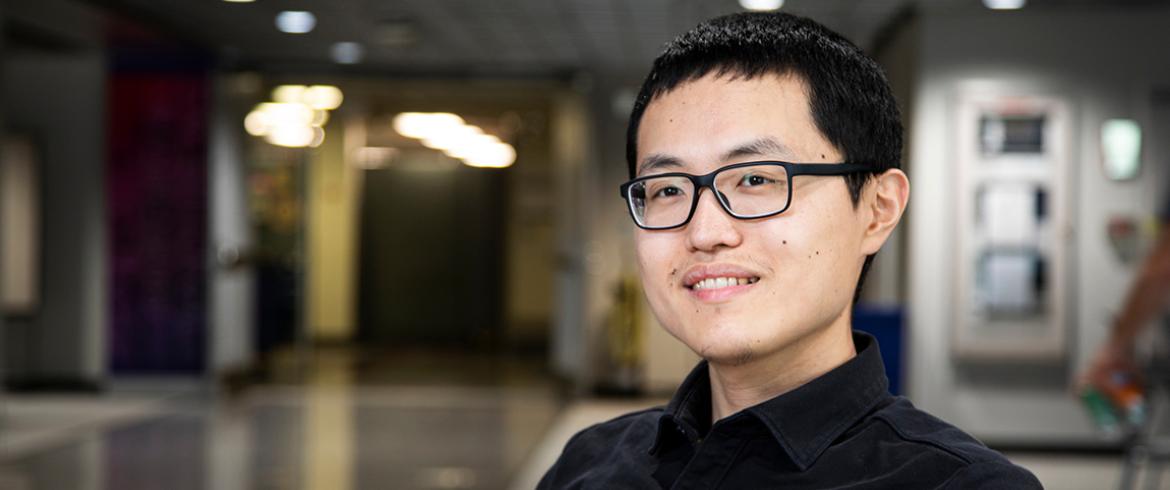
Toshiaki Kanai, a doctoral candidate in physics at Florida State University, works with FAMU-FSU College of Engineering Mechanical Engineering Associate Professor Wei Guo at the National High Magnetic Field Laboratory. (M Wallheiser/FAMU-FSU Engineering)
Toshiaki Kanai, a graduate research student working with Wei Guo, an associate professor in mechanical engineering, won the best poster award at the Florida State University Quantum and Science Symposium. Kanai received the award for his research on a theoretical study on electron-neon qubit quantum states.
“I am happy that the attendees at the symposium enjoyed and appreciated my poster presentation,” Kanai said. “Our study shows that an electron could spontaneously bind to small bumps on a solid neon surface. This results in the formation of unique ring-shaped quantum states that could be utilized for qubits.”
The three-day event highlighted cutting-edge research activities of critical and national importance and provided faculty, postdocs and students with opportunities to present their work. The attendees included nearly two dozen researchers from institutions such as Oak Ridge National Laboratory, Los Alamos and several industries and universities.
Kanai is pursuing on a doctorate in Physics at FSU and works as a graduate research assistant at the National High Magnetic Field Laboratory. He is part of Guo’s Cryogenics research team. Guo and Kanai are preparing to publish a paper showcasing the results.
“Recent experiments suggested that qubits made by single electrons trapped on solid neon surface have an exceptionally long coherent time,” said Guo. “Our theoretical study provides a comprehensive understanding of the quantum states of electrons on solid neon. This understanding not only sheds light on why the e-neon system performs exceptionally well but also provides valuable guidance on how to further improve the system’s design.”
RELATED ARTICLES
Engineering researchers prove well-accepted theory of Onsager vortices doesn’t hold up
FAMU-FSU cryogenic researchers use the science of “cool” to advance particle accelerator development
